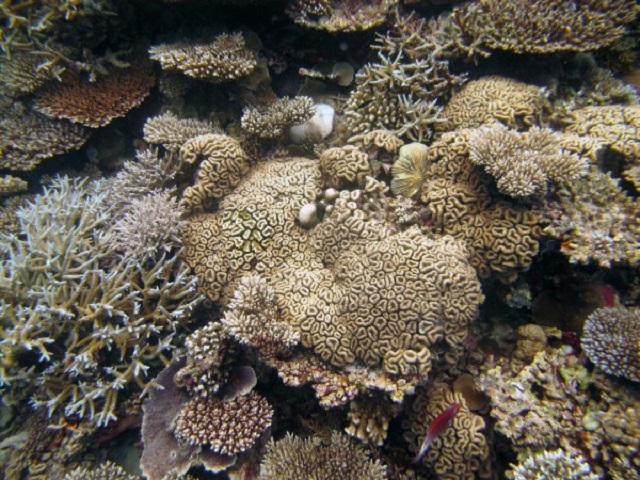Coral reefs in Western Indian Ocean to be extinct by 2070?
Coral reef is an underwater ecosystem, which is composed of skeletons of colonial marine invertebrates called coral.

Coral reef ecosystem extinction: Most of the coral reefs in the western Indian Ocean face high risk of extinction in the next 50 years due to global warming and overfishing, as per a new study. The study conducted by a group of researchers claims that coral reefs from Seychelles to South Africa might become functionally extinct by 2070.
The researchers explain that the collapse of the coral reef means the exctinction of the entire reef system, as though we may still be able to find few reef species, it would not be possible to construct a reef anymore.
The possible extinction of the coral reefs could cause a huge loss to biodiversity and hamper livelihood and food sources of thousands of people living in the neighbouring areas. The study was published in the journal- Nature Sustainability.
What are coral reefs?
Coral reef is an underwater ecosystem, which is composed of skeletons of colonial marine invertebrates called coral. The coral reefs are formed of colonies of coral polyps that are held together by calcium carbonate. Most of the coral reefs are built from stony corals, whose polyps cluster in groups.
The coral species that build coral reefs are known as hermatypic or hard corals, as they extract calcium carbonate from seawater to create a hard, durable exoskeleton that protects their soft, sac-like bodies.
Other coral species that are not involved in reef-building are known as soft corals. These corals are flexible organisms that often resemble plants and trees.
Each individual coral is referred to as a polyp and these polyps live on the calcium carbonate exoskeletons of their ancestors while adding their own exoskeleton to the existing coral structure. The coral reef gradually grows with time, one tiny exoskeleton at a time.
Where are coral reefs found?
Most coral reefs grow in warm, shallow, clear, sunny and agitated water. They are found all over the world's oceans. The biggest coral reefs are found in clear, shallow waters of tropics and subtropics. The largest coral reef system, the Great Barrier Reef, is located in Australia. It is more than 2,400 kilometers long.
When were coral reefs first discovered?
The Coral reefs first appeared 485 million years ago, displacing the microbial and sponge reefs of the Cambrian.
What will happen if coral reefs become functionally extinct?
The collapse of a coral reef means the collapse of the coral reef system as when a reef collapses, it loses its ability to operate as a reef system. While some species may still be present, they would no longer be able to form a reef. This would impact all the coastal services ranging from tourism, fisheries and coastal protection from sea-level rise. It would put the low-income households and communities living in nearby areas at risk of losing their livelihood and food sources. The coral reef system also serves as critical nurseries for juvenile fish.
According to David Obura, chair of the IUCN corals group, who led the study, the huge tourism sector in east Africa is heavily dependent on heathy coral reefs.
How do we know coral reefs are collapsing?
The researchers had analysed the health of coral reefs in 10 countries in the neighbouring areas of the western Indian ocean. The analysis revealed that the coral reefs, especially those in the island nations are in grave danger due to the increasing temperature of the water due to global heating.
The rising sea temperatures is driving bleaching events when corals let out algae residing in their tissue, turning them entirely white, to become more regular.
While, the coral reefs in north Seychelles and other areas near the east African coast have been labelled as vulnerable and on the verge of collapse, due to overfishing, the reefs in the Comoros and Mascarene Islands and Madagascar's eastern and southern regions have been classified as critically endangered.
What are the reasons for the collapse of coral reefs?
Some of the key reasons for the collapse of coral reefs are -
-Global Warming
-Overfishing
-Pollution
-Habitat degradation
Due to these above reasons, the world's coral reef cover has almost become half since the 1950s. The researchers stated that the most urgent threat is from climate change up to 50 years from now. They stated that whether or not we can meet the target of limiting global warming to 1.5C in the future depends on what we do in the next 10 years and hence, we should be concerned about the next 10-year horizon.

No comments:
Post a Comment